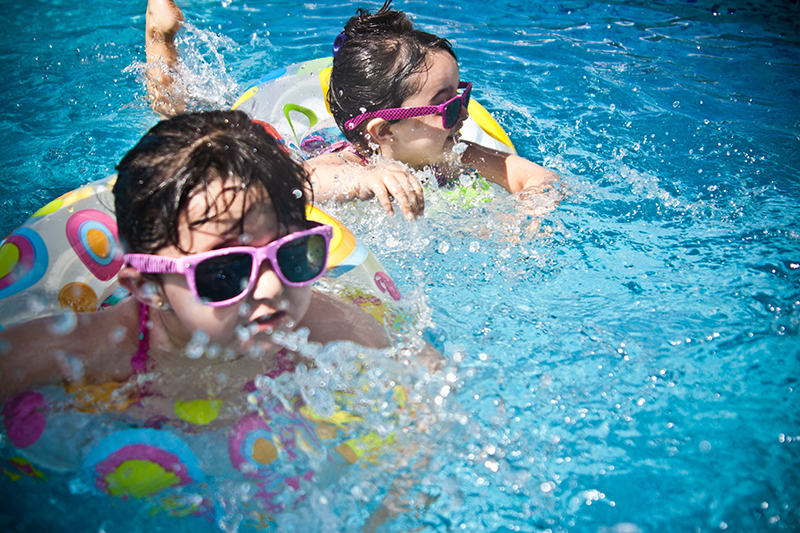Recreational Water Illnesses and Prevention

Swimming pools and waterparks are popular settings for kids to engage in a range of activities, from swim lessons to birthday parties. However, if contaminated with germs, these spaces can also serve as breeding grounds for recreational water illnesses.
As a parent, it’s important to spot the symptoms of recreational water illness and keep your kids healthy from the chemicals and germs that could be lurking in recreational bodies of water.
Common symptoms of illness
The most commons symptoms of recreational water illnesses include:
- Diarrhea
- Skin rashes
- Ear pain
- Cough or congestion
- Eye pain
Ways that illness can be spread
Recreational water illness can arise from swallowing, contacting, or breathing in mists from contaminated water.
Diarrhea stands as the most common recreational water illness. Those already infected with diarrhea can easily spread it to others once getting into a recreational body of water.
Other times, recreational water illnesses could arise from the germs naturally living in the water. Chlorine and bromine are two of the most common chemicals used to kill germs in public pools, hot tubs, and water parks. If these chemicals aren’t kept at the right levels, germs can multiply and induce sickness in swimmers.
Protecting against recreational water illness
As a parent, there are luckily many things you can do to protect your child against recreational water illnesses.
Do a mini-inspection of the water area in question
- Ensure that the drain at the bottom of the deep end of the pool is visible and that drain covers are secured and in good condition. Read more about pool drain safety.
- Use test strips to check if the chlorine or bromine levels in the water are at the levels necessary to kill germs. You can find these strips at most superstores, hardware stores, or pool supply stores.
- Make sure there are no chemicals out in the open.
Talk to your child before they enter the water
- If your child has diarrhea, make sure they don’t enter recreational bodies of water until 2 weeks after the diarrhea has completely stopped.
- Encourage your child to keep out of the water if they have an open cut or wound. If they choose to go into the water, ensure that their cut or wound is completely covered with waterproof bandages.
- It may be cold for just a second, but have your kids do a thorough rinse-off before entering the water to remove any dirt on their bodies.
It’s not over once they get in the water
- Take your kids on bathroom breaks and check diapers every hour.
- Remind them not to swallow the water.
- Dry your kid’s ears thoroughly after they get out of the water.
Considering its easy transmissibility, recreational water illnesses may be daunting to think about. With the right course of action and understanding of the spread and prevention of these illnesses, you can help protect your child against any kind of recreational water illness. Please see our kids water safety page for more water safety advice. You can also subscribe to our newsletter!
